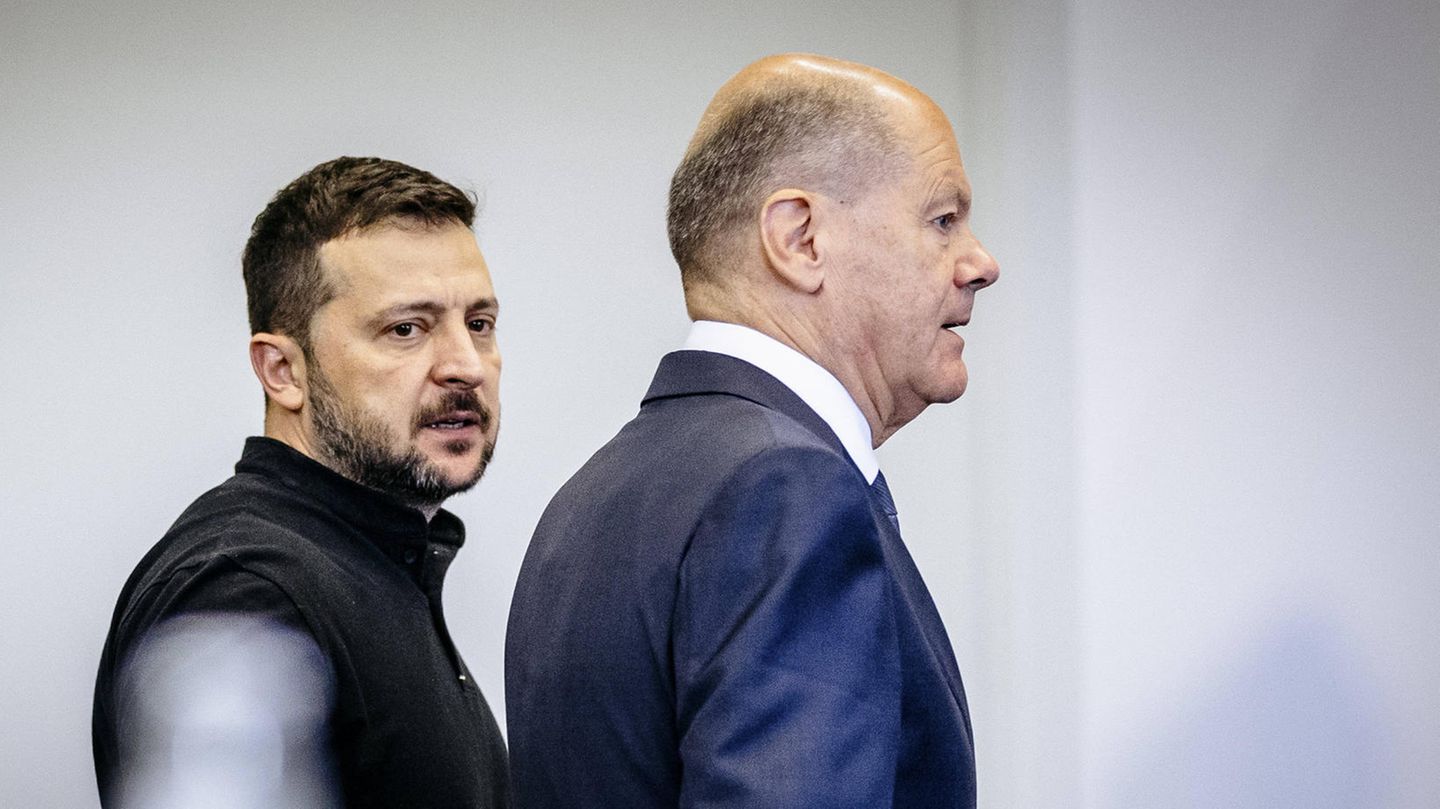analysis
A suspect in the attack on the pipelines has fled to Ukraine. The investigations have the potential to cause conflict for Berlin – and not just with other governments.
The Chancellor appeared somewhat determined: “We will find out who did it, as far as we can,” promised Olaf Scholz in August 2023. “And we will not bring charges just because we don’t like the result.” The talk was about the attacks on the Nord Stream 1 and 2 gas pipelines in the Baltic Sea in September 2022. “We absolutely want to clear this up,” said Scholz. “Nobody can hope for consideration.”
Now, one year after the Chancellor’s announcement, it has been announced that the Federal Prosecutor General has obtained a first arrest warrant from the Federal Court of Justice. It is directed against a Ukrainian citizen, a professional diver, who is said to have attached the explosives to the pipes on the seabed at a depth of 80 meters. The federal government immediately interpreted this as a sign that Scholz had kept his word. The investigations have “the highest priority,” announced deputy government spokesman Wolfgang Büchner. Although they do not want to comment on the matter in detail, they can say “that the investigations are being conducted in accordance with the law and without regard to the individuals involved.”
They are nevertheless delicate. Because they harbor potential for conflict in several areas – above all in relations with Ukraine. But also for the relationship between Berlin and Warsaw. And last but not least in the relationship between the government and the judiciary in Germany.
Nord Stream: Blackout would be a scandal
It is therefore obvious that the opposition always suspects that the federal government is putting up one stop sign or another to avoid political entanglements. “It would be a scandal if reasons of state led to traces to Ukraine being ignored and the results of the investigation being withheld,” said Klaus Ernst, a member of the Bundestag for the Sahra Wagenknecht Alliance (BSW), to the “Tagesspiegel”.
President Volodymyr Zelenskyi denies that his government had anything to do with the attack. However, the fact that the main suspect is from Ukraine and is said to have fled there is drawing attention back to Kyiv. Meanwhile, Berlin is trying to nip suspicions of influence in the bud.
The investigations on the one hand and German support for Ukraine on the other hand have in fact nothing to do with each other. “Regardless of the outcome of such investigations,” said deputy government spokesman Büchner, “of course nothing changes the fact that Russia is waging a war of aggression against Ukraine that violates international law.”
The situation could escalate if the suspicion against the Ukrainian diver is confirmed and the question of extradition arises. Such proceedings would continue under the leadership of the Federal Prosecutor’s Office, but it would not be the first time that such a question would also be the subject of political discussions. Would the Chancellor then try to put pressure on Zelenskyi to achieve extradition? Would Scholz perhaps even threaten to limit support? It’s hard to imagine.
Poland has always been one of the harshest critics
The investigations are also a delicate matter for German-Polish relations. Along with Ukraine, Poland has always been one of the harshest critics of the Nord Stream 2 Baltic Sea pipeline. A connection to the attacks cannot be proven, but a certain degree of goodwill for the destruction of the pipes is at least conceivable. And it is striking that the main suspect was apparently able to flee Poland to Ukraine in time after the arrest warrant was issued. The Polish side explains this as a failure on the part of the German investigators because the suspect was not entered in the Schengen register. Therefore, there was no legal basis for stopping him at the border.
Here, too, the Chancellor will have to exercise great sensitivity should the case one day reach the political level. For years, German-Polish relations suffered under the PiS government in Warsaw, which was very critical of Germany. Since the election of Donald Tusk as Prime Minister, the Chancellor once again sees Poland as an ally with similar political ideas. He will not want to put this tender seedling of a new friendship at risk lightly.
There remains a domestic political landmine: it concerns the authority of the federal government, namely the Minister of Justice, to issue instructions to the Federal Prosecutor’s Office. In the course of the release of prisoners from several countries who were being held in Russian prisons, Minister Marco Buschmann recently instructed the Federal Prosecutor General, against his conviction, to refrain from prosecuting the so-called Tiergarten murderer.
Vadim Krassikov, who had shot a man in Berlin and had been sentenced to life imprisonment on the grounds of the seriousness of his crime, was thus able to escape to Russia in exchange, where he was personally received as a hero by Vladimir Putin. Ordering Krassikov’s release was his most difficult political decision to date, Buschmann told the star in an interview. And of course Buschmann, like the entire federal government, must be careful to ensure that this case remains the absolute exception to the influence exerted.
Source: Stern
I have been working in the news industry for over 6 years, first as a reporter and now as an editor. I have covered politics extensively, and my work has appeared in major newspapers and online news outlets around the world. In addition to my writing, I also contribute regularly to 24 Hours World.




